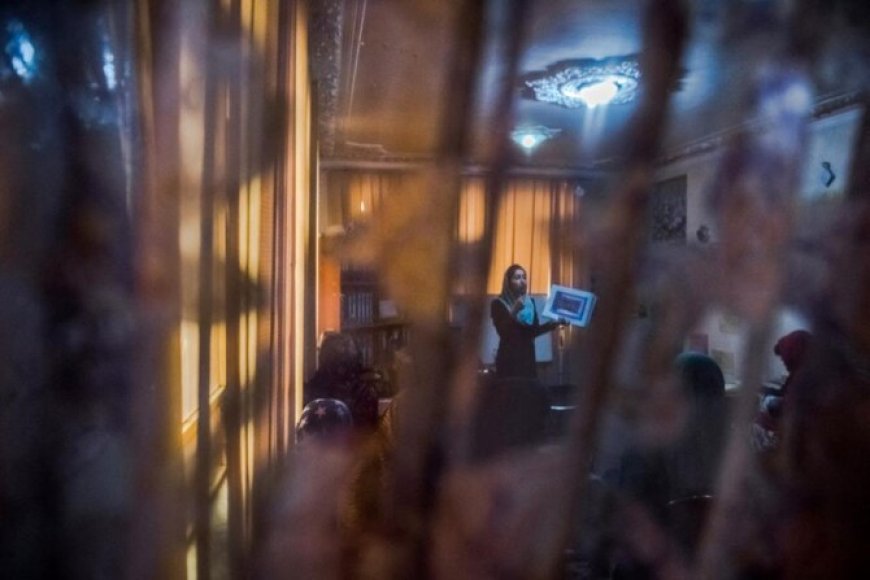The West's Negative Reaction to the Taliban's Persistent Repression of Women in Afghanistan
In an unexpected yet anticipated development, the Taliban government in Afghanistan has once more intensified its restrictions on women's rights.

In an unexpected yet anticipated development, the Taliban government in Afghanistan has once more intensified its restrictions on women's rights. All national and foreign nongovernmental organizations (NGOs) that operate in the country were ordered by the Taliban's Ministry of Economy to cease employing women on December 30, 2024. The regime's continued disregard for the rights and freedoms of half the population is emphasized by this decision, which comes just two years after a similar prohibition on Afghan women working for NGOs.
The most recent decree serves to underscore a pattern of oppression that has been profoundly concerning since the Taliban's resumption of power in 2021. Women in Afghanistan, who were once essential contributors to a variety of societal sectors, have had their opportunities systematically eroded. This action is a cruel blow to the numerous women who have been working tirelessly in NGOs, providing essential services such as healthcare, education, and humanitarian assistance to a population that has already been devastated by decades of conflict. The Taliban's decision to enforce this moratorium by threatening to revoke the licenses of NGOs that fail to comply is a stark reminder of the regime's authoritarian nature.
The ongoing suffering of Afghan women has been conspicuously neglected by Western powers, despite their assertion that their governments are committed to the preservation of democracy and human rights. Although they have consistently denounced the Taliban's policies, their actions—or absence thereof—speak volumes. The Afghan government's collapse in 2021 has left the region vulnerable to a regime that has only exacerbated its violations, despite the substantial resources that the U.S. and its allies have invested in the country over the past two decades.
The West's propensity to treat the situation in Afghanistan as a political or diplomatic matter, rather than a humanitarian calamity, is what is most frustrating. Despite the fact that the United States and its European allies have expressed their indignation regarding the Taliban's treatment of women, the sustained repression they have faced has rendered words insufficient. In stark contrast, the Taliban's oppressive policies are being greeted with little more than symbolic gestures. The West's reluctance to confront the issue with the urgency and commitment it deserves is emphasized by the absence of concrete action.
The West's broader ineffectiveness in safeguarding human rights in regions of strategic concern is exemplified by its failure to exert substantial pressure on the Taliban regime. Despite the fact that Western governments are frequently fast to impose sanctions on countries or groups that are perceived as a threat to global security, they have been significantly less assertive in their response to human rights violations that do not directly impact their geopolitical interests. Afghanistan, due to its strategic location, remains a pawn in the broader game of international politics, where the rights of women are sacrificed for broader political and economic considerations.
The Taliban's most recent decree, which prohibits the employment of women in non-governmental organizations (NGOs), is not merely an assault on women's rights; it serves as a stark reminder of the international community's failure to protect fundamental human dignity. It is insufficient for Western governments to issue condemnations and sanctions from afar. Concrete measures are required, whether that entails intensifying humanitarian assistance through channels that circumvent the Taliban or adopting a more assertive approach to diplomatic negotiations.
The women of Afghanistan find little comfort in the West's pretended concern. These women, who were previously marginalized in their own country, are now at risk of losing their employment, education, and access to essential services. The sense of helplessness experienced by those on the ground is further exacerbated by the international community's failure to implement a coordinated and forceful response.
The West will undoubtedly issue additional statements in the future weeks and months that express its opposition to the Taliban's actions. However, it is becoming increasingly evident that these remarks, while providing solace to their speakers, will not significantly alleviate the suffering of Afghan women. The query remains: When will the international community cease to merely discuss human rights and begin to take significant action to protect them? While the world is quick to condemn, it has been far too slow to take action. Until that time, the women of Afghanistan will continue to endure the brunt of the burden.













































